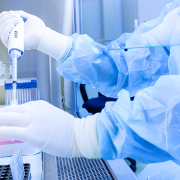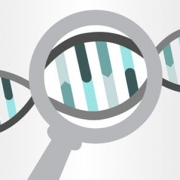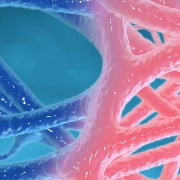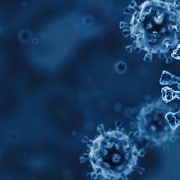Obesity: is it in our genes?
A complex and serious issue, obesity is the result of a combination of factors; but at least some our destiny lies in our genomes
The NHS estimates that in the UK around a quarter of adults and a fifth of children are obese. Obesity is one of the biggest challenges in modern healthcare; it is associated with increased risk of serious health conditions including type 2 diabetes, heart disease, stroke and some cancers, as well as conditions affecting quality of life such as joint problems, asthma, gallstones and subfertility.
Certain aspects of lifestyle are known to impact an individual’s weight – diet and exercise, for example. But what’s the latest on those contributors that are less about choice and more about chance?
The ‘size’ of our genes
As many as 400 genes have been shown to affect body weight in one way or another.
In the largest study of its kind, researchers from the University of Cambridge recently compared the genomes of 1,622 people with a low BMI (under 18) with those of nearly 2,000 genomes from obese people and over 10,000 from people whose BMI was in the healthy range.
The results of the study identified that a number of genes with variants associated with obesity also have variants associated with thinness.
“This research shows for the first time that healthy thin people are generally thin because they have a lower burden of genes that increase a person’s chances of being overweight,” said study lead Professor Sadaf Farooqi of the University of Cambridge.
The role of the microbiome
The relationship between the gut microbiome and body weight is not yet well understood, but there is evidence that it can play an important role. In one reported case, a woman whose weight was previously healthy and stable gained over 15kg in 16 months after receiving a fecal transplant from a healthy but overweight donor to treat a recurrent clostridium difficile infection.
There is also evidence that an individual’s microbiome is influenced by both environmental factors and the host’s genome. For example, Bifidobacteria have been shown to be more abundant in the gut microbiomes of people who do not have the gene variant conferring lactase persistence (the ability to digest lactose after infancy) but who nevertheless consume milk. These bacteria can break down lactose and may allow such people to tolerate lactose better.
Exercise benefits everyone
A recent study found that certain physical activities could reduce the genetic effects that cause obesity.
Researchers at Taiwan University used Taiwan Biobank data to examine 18,424 unrelated Han Chinese adults between 30 and 70 years old. As well as the participants’ genomes, the researchers considered body mass index, body fat percentage, hip circumference and waist-to-hip ratio, as well as self-reported exercise routines. The researchers assigned subjects genetic risk scores for each of the obesity measures and then observed whether different types of exercise counteracted the risk. Their results showed that participants with the highest risk of obesity benefited most from regular exercise.
“This study adds to the collection of emerging evidence of the benefits of physical exercise in reducing obesity in those of us with and without the genes that make it easier for us to gain weight,” said Professor Lora Heisler, Chair in Human Nutrition at the University of Aberdeen, who was not involved in the research.
The more scientists delve into the reasons behind obesity rather than simply the outcomes, the more it becomes clear that individuals are different. It is apparent that understanding the interaction between human gene variants, the microbiome, diet and exercise will be vital if we are to successfully tackle the so-called ‘obesity epidemic’; or at least understand the true risks of obesity for different individuals.
–









